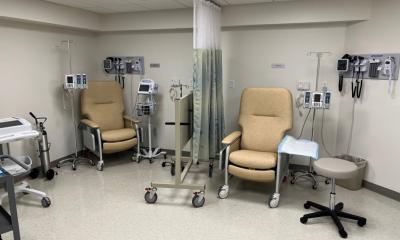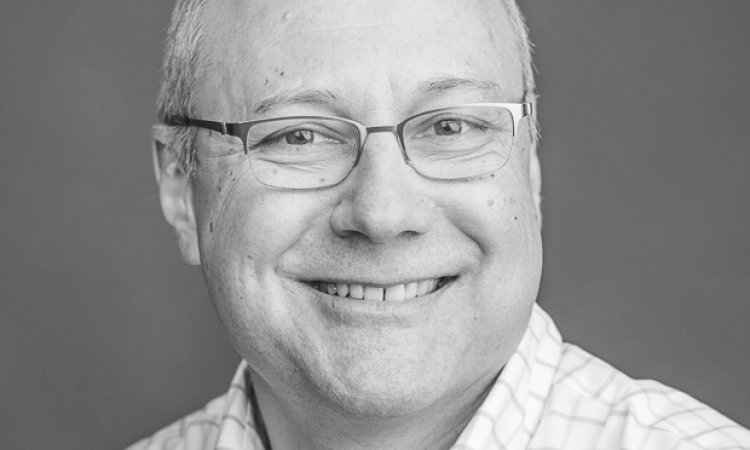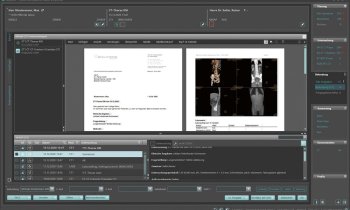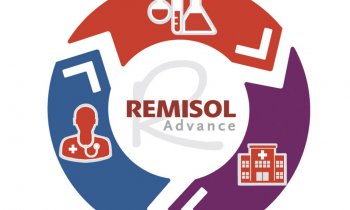Article • Professional perspectives
Theranostics: A career opportunity for Nuclear Medicine Technologists
Theranostics radiopharmaceutical drug treatments are expected to revitalize interest in nuclear medicine as an innovating imaging technology. Theranostics also offer new opportunities for nuclear technologists. But they need to prepare and act now to become an advanced clinical practitioner (ACP) in radionuclide therapy, attendees at the 2024 annual meeting of the Society of Nuclear Medicine and Molecular Imaging (SNMMI) held in 8-11 June in Toronto, Ontario were advised.
Article: Cynthia E. Keen
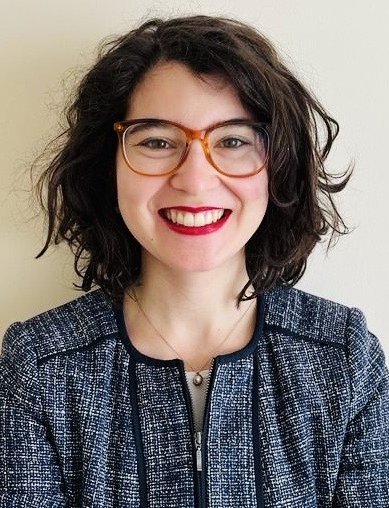
In a presentation entitled ‘What’s Next for Technologists?’, Luísa Roldão Pereira, an ACP in Nuclear Medical Therapies at Maidstone and Tunbridge Wells NHS Trust in the UK, urged nuclear medicine technologists to step outside their comfort zone, educate themselves and take on additional responsibilities. Pereira works in a large, acute hospital trust in southeast England serving a population of about 760,000. Its cancer centre provides specialist services to about 1.9 million people living in Kent, Medway, and East Sussex.
‘The position of ACP is being established in the UK and offers opportunities in research and clinical management for nuclear technologists,’ said Pereira. ‘Advanced level practice is not a doctor or medical physicist substitute. It is a hybrid approach between nursing, allied health care professionals, and medicine to meet patient needs to provide a range of additional value and benefits. It complements and supplements the care that a multi-professional team can deliver.’
A deep dive into the complexity of patient cases
Pereira pointed out that technologists have not historically had many opportunities for advancement if they wish to still interact with patients. Traditionally, after starting as a technologist, they may progress to senior technologist level, eventually become a department manager, and/or leave a clinical position to work in industry. ‘Current demand exceeds capacity for ACPs,’ she explained. ‘It is an excellent time to bring research into our work, and to take a more proactive role with respect to our knowledge of nuclear medicine. In addition to volunteering to participate in clinical trials, we can help implement new guidance and protocols, work on service improvement committees, and become subject matter experts in nuclear medicine.’
Don’t assume that one patient is like another. [...] An ACP delves into the potential complications, alerts the care team of potentially overlooked needs, and works collaboratively to address them
Luisa Roldão Pereira
ACPs who are nuclear technologists are “naturals” to have personal in-depth conversations with patients. Patients may be confused about their treatment, their stage of disease, and how they will be impacted. They may have no one to openly talk to about their treatment or the long-term implications of having cancer. The technologist can proactively probe and act on concerns, as well as ask or alert a clinical colleague to have these difficult conversations.
‘Don’t assume that one patient is like another. A patient with bone metastases requiring six radium injections may be a more complex patient than initially appears,’ cautioned Pereira. ‘They may have a bowel condition that interferes with excretion routes. They may be increasingly experiencing difficulties in pain management, or have comorbidities that can be impacted by cancer therapy. An ACP delves into the potential complications, alerts the care team of potentially overlooked needs, and works collaboratively to address them.’
Details matter
It’s important to learn a patient’s profile and be confident in risk assessment, finding out what matters to the patient and consider practicalities: How do they get home after a treatment? Will they be accompanied by family member, are they planning on using public transport or taking a taxi, and if the latter, are they physically able to do so unaided after treatment? Is the patient independent in daily life? Do they need personal assistance? What are their home circumstances? Are there children at home? Even details such as the number of toilets at home may be important. What is going to be done about decontamination of a bathroom at home – and at the workplace, if the patient is still working?
An ACP needs to make physical, psychological, and social assessments each treatment cycle. If clinical red flags of deterioration become apparent, the ACP should alert the wider patient’s care team. This is especially important in cases when an oncologist is remotely located.
Recommended article

Article • New concept 'HeiMeKOM'
Involvement of patients and relatives improves cancer communication
The Heidelberg Thorax Clinic is trialling a newly structured, longitudinal communication concept to meet proactively the complex needs of stage IV lung cancer patients and their relatives. The concept is aimed at enhancing prognostic understanding and building the basis for proactive care planning, early integration of palliative care and shared decision-making, ultimately improving overall care.
‘If a patient needs hospital admission following radionuclide treatment, the ACP should review radiation safety practicalities with hospital staff. Sometimes we only consider a “standard patient”, but in reality, we must think about the practicalities of the inpatient’s needs, such as a private room set up to minimize decontamination clean up, handling of laundry, waste management, feasibility of visitors, and unique to patient issues such as decontamination of dialysis equipment,’ said Pereira.
‘Theranostics is on our doorstep’
She added, ’You should check on response to therapy on a personal level, too. Make a follow-up call to see how the patient and the family are coping. Is the patient experiencing toxicities, and do these need additional clinical management? A personal telephone conversation is also an opportunity to reinforce compliance by reminding the patient of radiation protection requirements.’
‘In the role of ACP, questions to ask ourselves include: Are we doing enough and providing the best care that we possibly can? Are we struggling with other professions’ overprotective attitude? Are we hiding behind our professional barriers? We should never lose sight of the main goal – exceptional patient care,’ she said.
Nuclear medicine technologists who wish to become an ACP also need to be aware about professional insurance and should learn about liability and statutory regulations. They need to spend time with leadership teams, learn about and offer to participate in studies and in department and/or hospital improvement and innovation projects. ‘What is next for nuclear technologists is not next, it is now. Theranostics is on our doorstep. It represents a huge opportunity for career development. But if we don’t prepare for this role, another healthcare professional will,’ cautioned Pereira.
Profile:
Luísa Roldão Pereira, based in the United Kingdom, is currently an Advanced Practice Trust Lead at Maidstone and Tunbridge Wells NHS Trust, bringing experience from previous roles at Maidstone and Tunbridge Wells NHS Trust, European Association of Nuclear Medicine Technologists Committee and NHS England. She takes on roles in the training and equivalence assessment of Nuclear Medicine Technologists, through the Institute of Physics and Engineering applied to Medicine, and the in the Register of Clinical Technologists. She also has a keen interest for Quality and Audit, participating in external assessments and inspections.
26.06.2024



